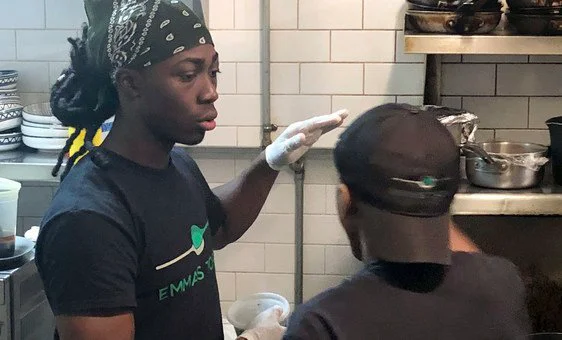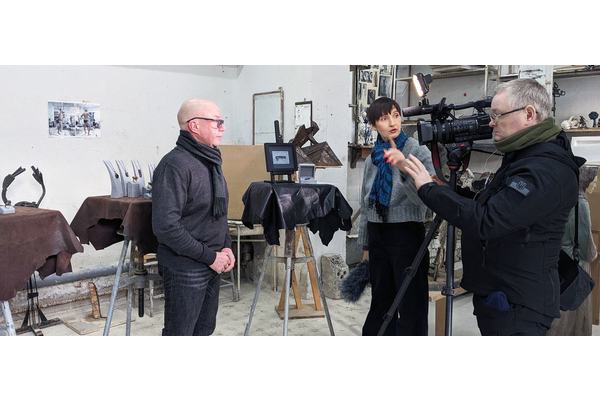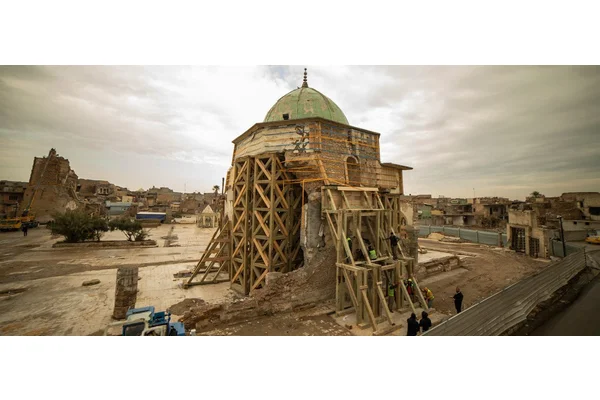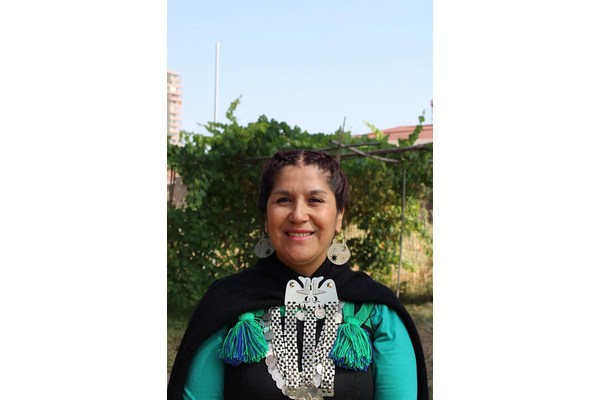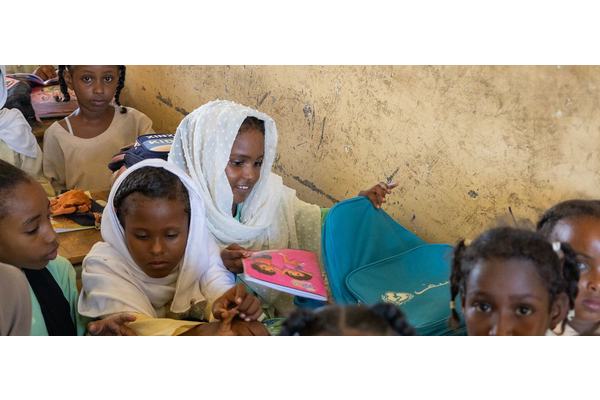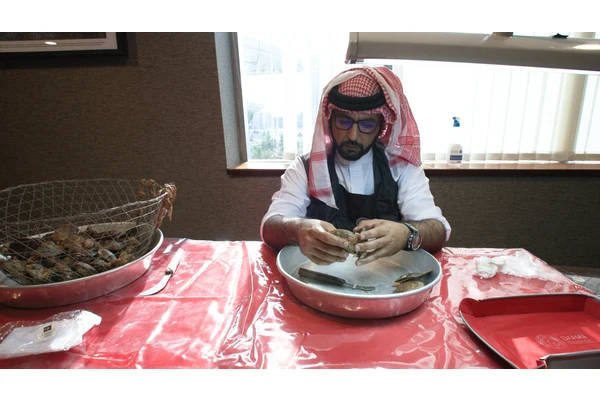Ingredients for a new life: how cooking helps refugees and migrants blend in | UN News
On a Friday afternoon, in a small restaurant kitchen in the New York borough of Brooklyn, head chef Alexander Harris is giving instructions to his attentive team, preparing them for the busy evening ahead. So far, the tables are empty, but the small, popular space, with just a handful of tables - and some stools around the bar - will soon be bustling with the evening crowd.
New York is a testament to the positive story of migration, and of its goals and potential. Omer Eltigani, food writer
Omer, whose family are Sudanese, hosts food events in New York and other major cities, where he tells the story of Sudan through food, and uses food as a vehicle for education about the country’s history and culture. Sudanese food, he says, is a story of inbound and outward migration, of people coming into Sudan and leaving their mark, and others taking their culture and food with them when they leave: a “reciprocal arrangement that’s repeated countless times”.
The IOM story shows that many of the local ingredients used by New York’s best chefs are the product of immigration. Norwich Meadows Farm, for example, which supplies world-famous New York restaurants, employs Egyptian farmers to use the country’s techniques and technology to grow exotic vegetables – from sweet Kyoto red carrots, to Jimmy Nardello peppers and husk cherries – that end up as, literally, the flavour of the month, causing lines of hungry diners to form outside establishments across the city.
Changing perceptions
Food has the power to build cultural connections, and this has been recognized by the Refugee Food Festival, a project supported by the UN refugee agency (UNHCR), which began in Paris in 2016, and has expanded to 14 cities, including New York.
As the so-called “refugee crisis” dominated headlines in Europe – with large numbers of people heading to the European Union via the Mediterranean Sea, and through southeastern Europe – the founders of the festival decided to use the values of cooking to counter the often negative discourse surrounding refugees and migrants, and change the perceptions of those who leave their homes to start a new life elsewhere.
What our students bring to the table has value, and we are fortunate to be able to work with them to ensure that they are welcomed by their new community Kerry Brodie, Executive Director, Emma's Torch restaurant
Restaurants in participating cities open their kitchens to refugee chefs and adapt their menu accordingly during the festival. The 2019 edition saw some famous New York restaurants inviting diners to discover Sri Lankan, Syrian, Iranian and Afghan cuisine.
A UNHCR-funded survey into the impact of the festival has found that some 70 per cent of participants in the festival believe that the festival has led to them thinking more positively about the welcoming of refugees, and more than 90 per cent left with plans to take a more active role in supporting them. As for the refugee chefs, around two- thirds of those who took part in the festival gained access to at least one professional opportunity, such as training, work in a professional kitchen, or opening their own restaurant.
It's 'the right thing to do'
Back at Emma’s Torch, Alexander Harris has seen first-hand how transformative the experience of taking their first steps on a culinary career has been for many of his students: “one of the more amazing parts of being in this programme is the journey, from day one to the last day, that each student goes through, and to see their cultural and technical awakenings, as well as their personal growth and development. They start off as being someone who doesn’t believe they could do this, to someone who is smiling, and confident, and ready take on the world”.
The restaurant’s Executive Director, Kerry Brodie, adds that the experience is not only beneficial to the students, but also for the people who come to eat at the restaurant, and for all Americans:
"We engage in this work not simply because our students are people less advantaged than ourselves; we do this because, as Americans, we believe that when we are at our best, this is how we behave, simply because it’s the right thing to do.”
“There is no ‘us’ and ‘them’, but if there was, I would argue that ‘they’ make ‘us’ stronger and better. What our students bring to the table has value, and we are fortunate to be able to work with them to ensure that they are welcomed by their new community."

